Studio Visit
See How Artist Shinique Smith Turned an L.A. Jazz Club Frequented by Miles Davis and John Coltrane Into a Highly Enviable Studio
The artist recently opened a show at the Nerman Museum of Contemporary Art in Kansas.
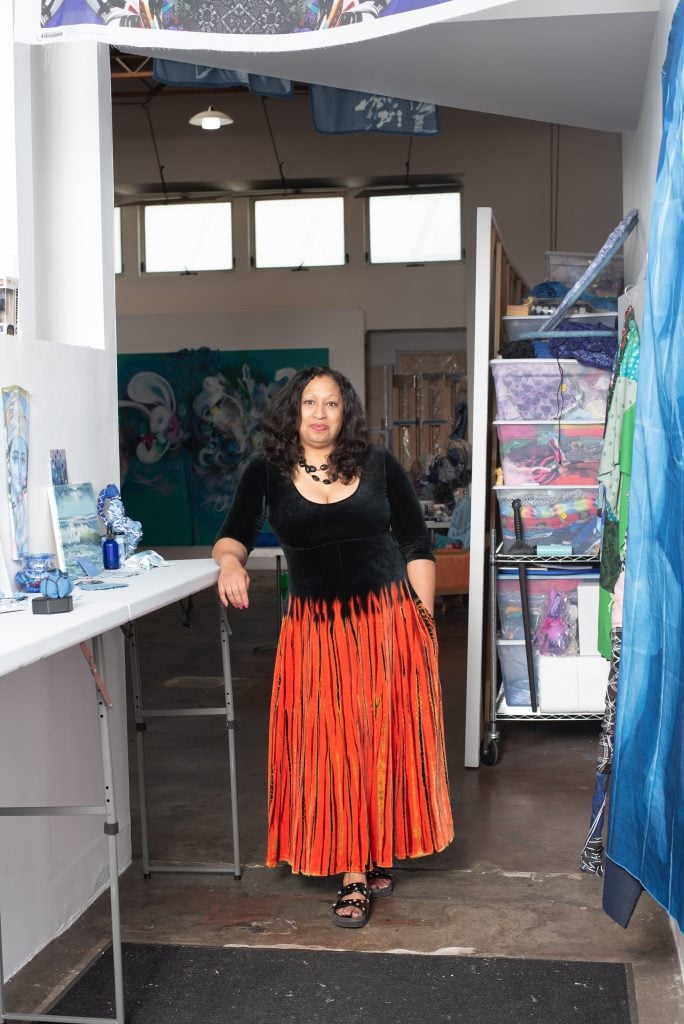
The artist recently opened a show at the Nerman Museum of Contemporary Art in Kansas.

Artnet News

When Shinique Smith moved into a new Los Angeles studio last year, she didn’t go for just a light-flooded space with towering ceilings. Instead, she opted for a studio with those qualities, and that also happens to be housed in the former It Club, a legendary jazz venue where Thelonious Monk, John Coltrane, and Miles Davis often played in the 1960s.
It’s a more than fitting environment for an artist who regularly explores Black history in her work. There, Smith dyes and bleaches fabric, paints canvases, bundles cloth into sculptures, and otherwise transforms materials with complicated histories—such as indigo cloth, once a cash crop like cotton—into nuanced visual languages. For a recently opened show at the Nerman Museum of Contemporary Art in Kansas, Smith is showing a series of large-scale works that she made while blindfolded during the Black Lives Matter protests.
We checked in with the artist about her studio inspirations, her must-have tools, and the video production she’s working on next.
Did the studio’s former life as a jazz club hold any special appeal to you when you moved in? Do you ever think about the legacies of the artists who played there when you work there today?
Indeed knowing that this space was formerly the It Club gave it extra appeal for me as an artist. The space has good energy and though there was a fire at It Club it has the original floor where these amazing artists once played. I think of them often and the improvisations once played in the same space where I work. When I moved in, I purchased the album Thelonious Monk Live at the It Club and played it in my studio on the anniversary of the day it was recorded, and I continue to do so.
Can you send us a snap of the most indispensable item or items in your studio and tell us why you can’t live without them?
My most indispensable tools are my hands. I touch everything: building, drawing, wrapping, bundling, brushwork—all of my work is imbued with my sense of touch.
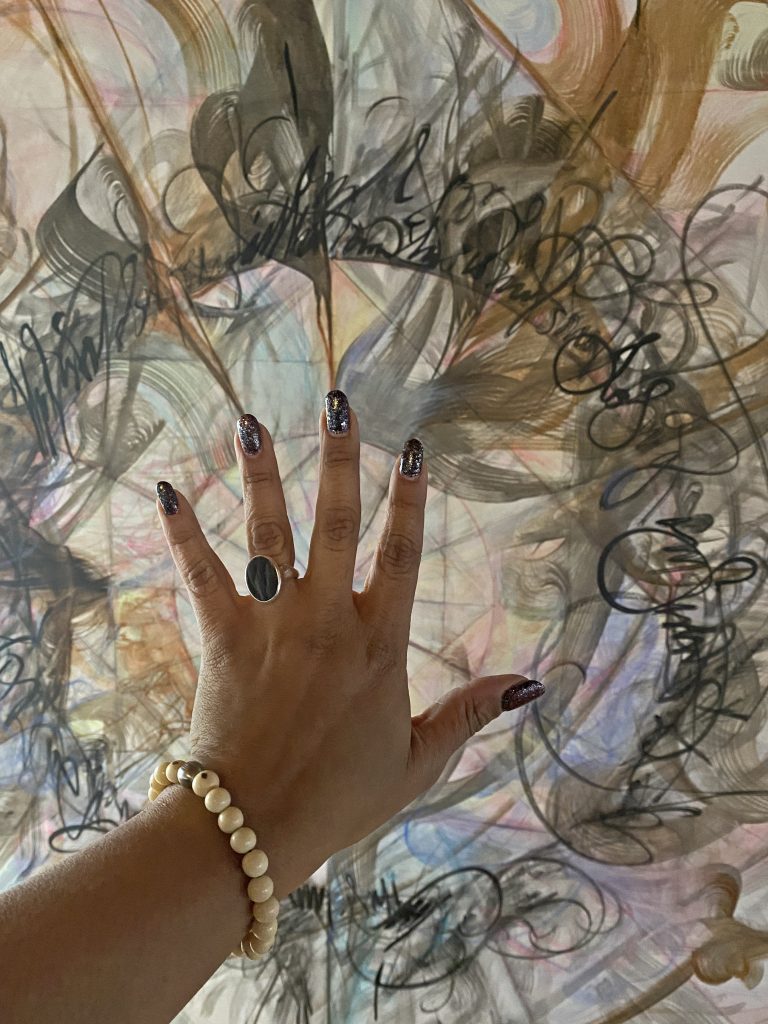
Shinique Smith’s hand.
Also, next on the list is natural light! Shadows, reflections, and colors cast across the space influencing my palette and mood. It fills the air and affects the energy of all my work.
What is a studio task on your agenda this week that you are most looking forward to?
This week I am looking forward to my artist talk and reception for my new exhibition, “Stargazers.” Also, I look forward to planning my next video production, as my piece Breathing Room: Moon Marked Journey has evolved into a series. When I return to the studio, I will be story-boarding and speaking with collaborators who will film with me on location in South Carolina and other places that are significant to me, to indigo production, and to ancestral migration paths.
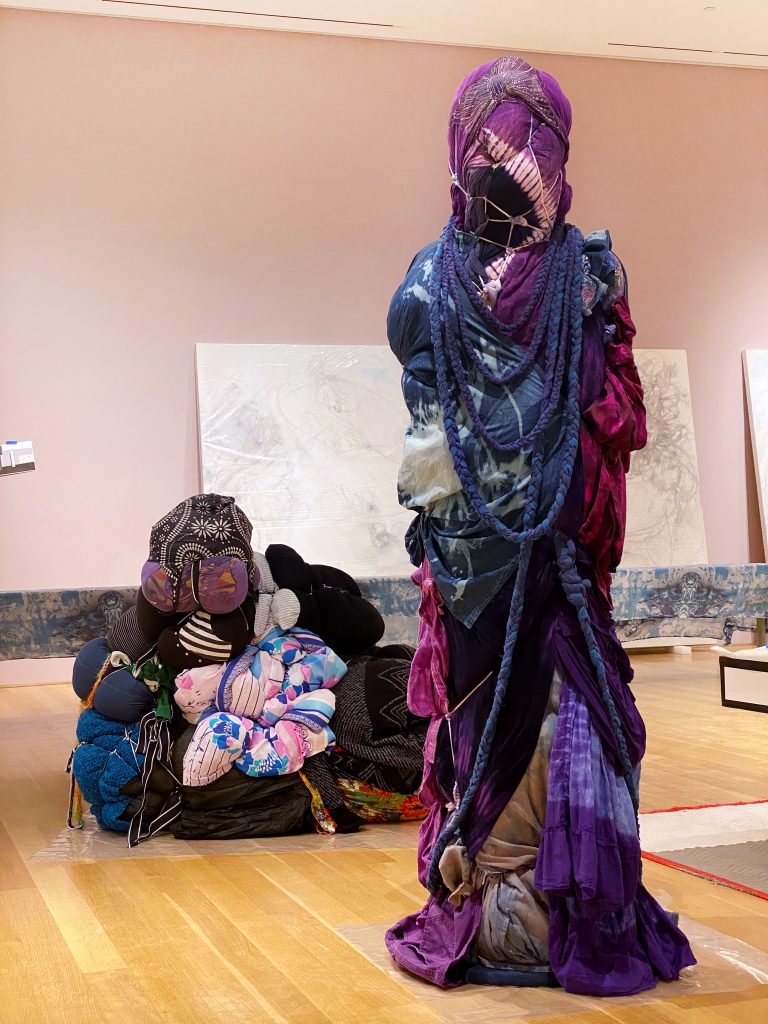
Installing Shinique Smith’s sculptures Mitumba Deity II (2018) and Grace Stands Beside (2020) at her new show “Stargazers” at the Nerman Museum of Contemporary Art. “I had not seen them together before,” the artist said. “It was a moment for me to see how they resonated in proximity to each other.”
What kind of atmosphere do you prefer when you work? Do you listen to music or podcasts, or do you prefer silence? Why?
I keep it mostly silent in the studio when I prefer to listen to my own thoughts and internal music. Otherwise, I am listening to nonfiction. I don’t listen to fiction so much because I do not want to be swayed or caught up in manufactured emotion. I want to be as present as possible when I am working, and if my mind wanders and emotions rise within, they are coming a real place from my own experience. One of the latest books is The Fabric of Civilization: How Textiles Made the World. It reaffirms what I have always believed: that fabric is one of the greatest and most important inventions of humanity.
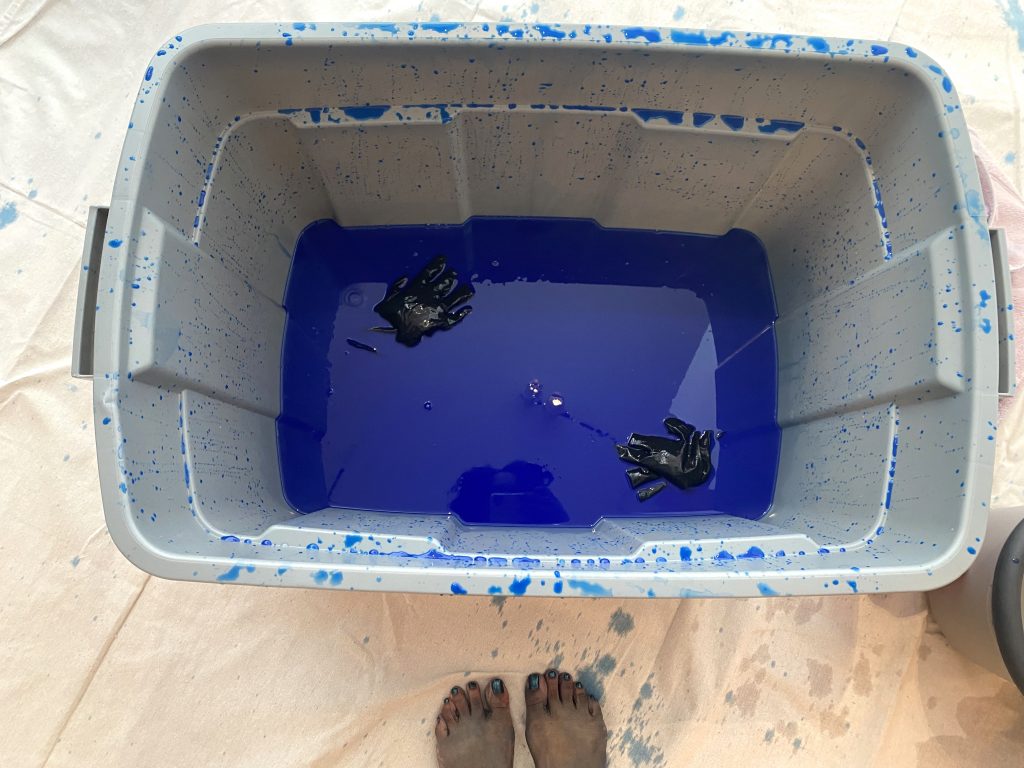
Shinique Smith selfie with colored water while doing body prints for her show at the Nerman Museum.
Who are your favorite artists, curators, or other thinkers to follow on social media right now?
I follow 2,000+ pages dedicated to friends, art, science, cute animals, and more. I haven’t been on socials much lately, but here’s a few that I checked out on Instagram today: @the.black.gaze, @cerebral_women, @friendswithyou, @geometriasagrada, and @thehoodwitch.
Is there a picture you can send of your current work in progress at the studio?
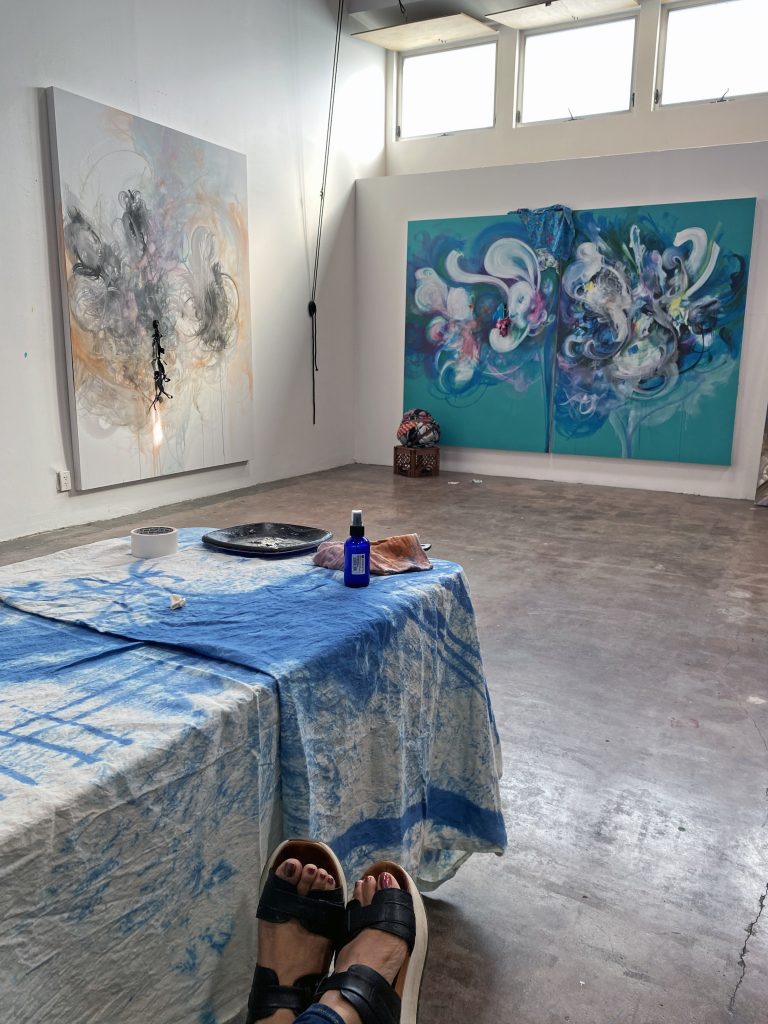
Works in progress at Shinique Smith’s natural light-flooded studio: Smoke Dancers, left, and Mutual Butterflies.
When you feel stuck while preparing for a show, what do you do to get unstuck?
I draw; new ideas or thoughts related to what I am working on. I write or I work on something else and then return to the piece with new reflections and fresh eyes.
What trait do you most admire in a work of art? What trait do you most despise?
I admire honesty (directness/openness), and erudition in application, composition, and thought is key. I despise visual bluntness, when something is illustrative without any other internal dialogue, or when painting relies too much on photography—one might as well create a photo edition.
What images or objects do you look at while you work? Share your view from behind the canvas or your desktop—wherever you spend the most time.
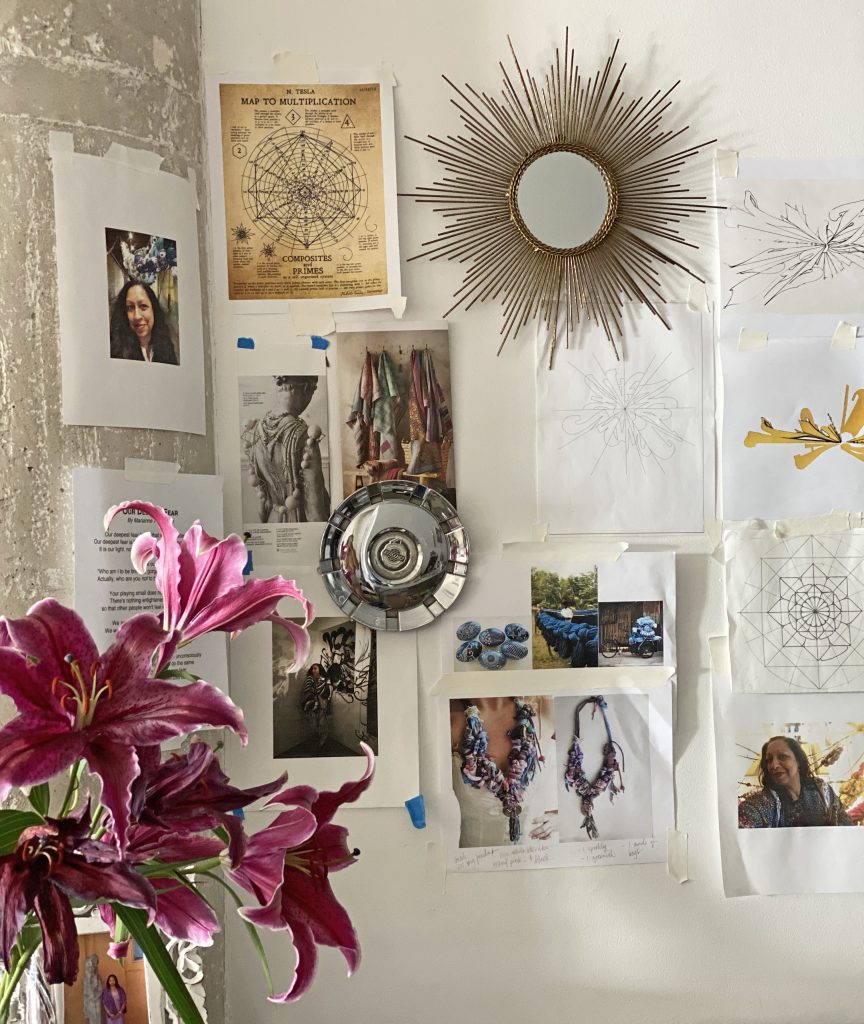
Studio wall of inspiration, including sketches and images of past works that involve jewelry and line and spiral geometries.
What is the last exhibition you saw that made an impression on you and why?
I saw the Whitney Biennial when I was passing through town for a brief visit. It was overwhelming because I had to leave and there was so much to absorb in a short visit. Though I only saw a portion, the works I saw were provocative, so I look forward to returning.